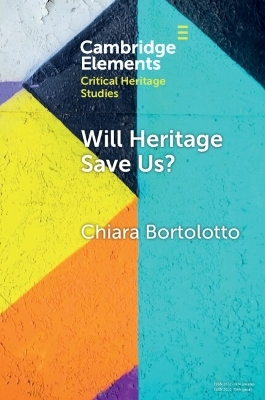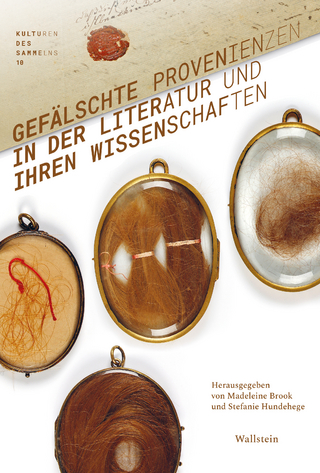
Will Heritage Save Us?
Intangible Cultural Heritage and the Sustainable Development Turn
Seiten
2025
Cambridge University Press (Verlag)
978-1-009-50910-7 (ISBN)
Cambridge University Press (Verlag)
978-1-009-50910-7 (ISBN)
- Noch nicht erschienen (ca. April 2026)
- Portofrei ab CHF 40
- Auch auf Rechnung
- Artikel merken
Drawing on extensive ethnographic engagement with the social world of the UNESCO Convention for the safeguarding of the intangible cultural heritage, this Element explores the mainstreaming of sustainable development principles in the heritage field.
Drawing on extensive ethnographic engagement with the social world of the UNESCO Convention for the Safeguarding of the Intangible Cultural Heritage, this Element explores the mainstreaming of sustainable development principles in the heritage field. It illustrates how, while deeply entwined in the UN standardizing framework, sustainability narratives are expanding the frontiers of heritage and unsettling conventional understandings of its social and political functions. Ethnographic description of UNESCO administrative practices and case studies explain how the sustainabilization of intangible cultural heritage entails a fundamental shift in perspective: heritage is no longer nostalgically regarded as a fragile relic in need of preservation but as a resource for the future with new purposes and the potential to address broader concerns and anxieties of our times, ranging from water shortages to mental health. This might ultimately mean that the safeguarding endeavor is no longer about us protecting heritage but about heritage protecting us.
Drawing on extensive ethnographic engagement with the social world of the UNESCO Convention for the Safeguarding of the Intangible Cultural Heritage, this Element explores the mainstreaming of sustainable development principles in the heritage field. It illustrates how, while deeply entwined in the UN standardizing framework, sustainability narratives are expanding the frontiers of heritage and unsettling conventional understandings of its social and political functions. Ethnographic description of UNESCO administrative practices and case studies explain how the sustainabilization of intangible cultural heritage entails a fundamental shift in perspective: heritage is no longer nostalgically regarded as a fragile relic in need of preservation but as a resource for the future with new purposes and the potential to address broader concerns and anxieties of our times, ranging from water shortages to mental health. This might ultimately mean that the safeguarding endeavor is no longer about us protecting heritage but about heritage protecting us.
Introduction: ICH, endangerment, and prospective loss; 1. ICH as an object of change; 2. ICH as an object for change; 3. The sustainabilization of heritage; 4. Diversity and standardization; Conclusion.
| Erscheint lt. Verlag | 1.4.2026 |
|---|---|
| Reihe/Serie | Elements in Critical Heritage Studies |
| Zusatzinfo | Worked examples or Exercises |
| Verlagsort | Cambridge |
| Sprache | englisch |
| Themenwelt | Kunst / Musik / Theater |
| Geisteswissenschaften ► Archäologie | |
| Geisteswissenschaften ► Geschichte ► Hilfswissenschaften | |
| ISBN-10 | 1-009-50910-1 / 1009509101 |
| ISBN-13 | 978-1-009-50910-7 / 9781009509107 |
| Zustand | Neuware |
| Informationen gemäß Produktsicherheitsverordnung (GPSR) | |
| Haben Sie eine Frage zum Produkt? |
Mehr entdecken
aus dem Bereich
aus dem Bereich
Buch | Hardcover (2024)
Wallstein Verlag
CHF 53,20


